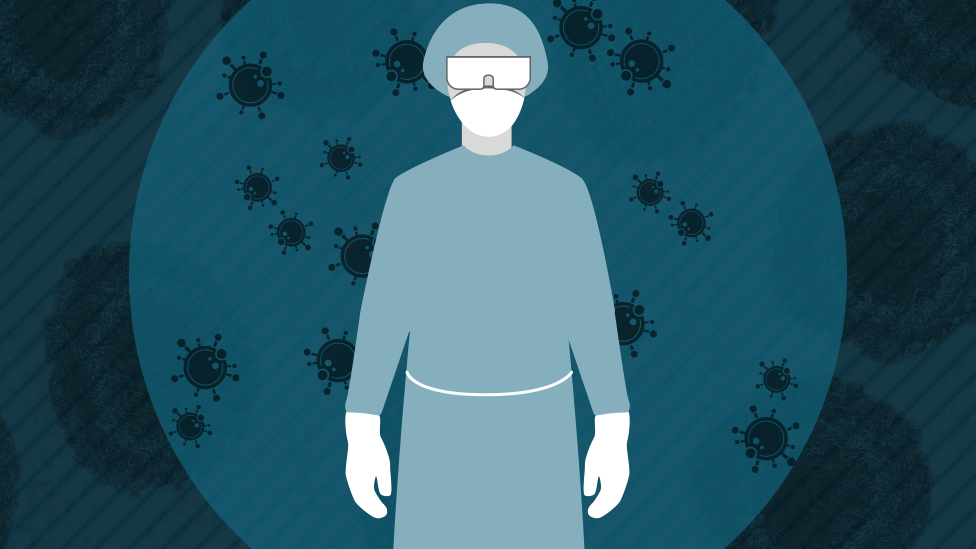Covid: One million masks for NHS fail high-grade safety tests
- Published
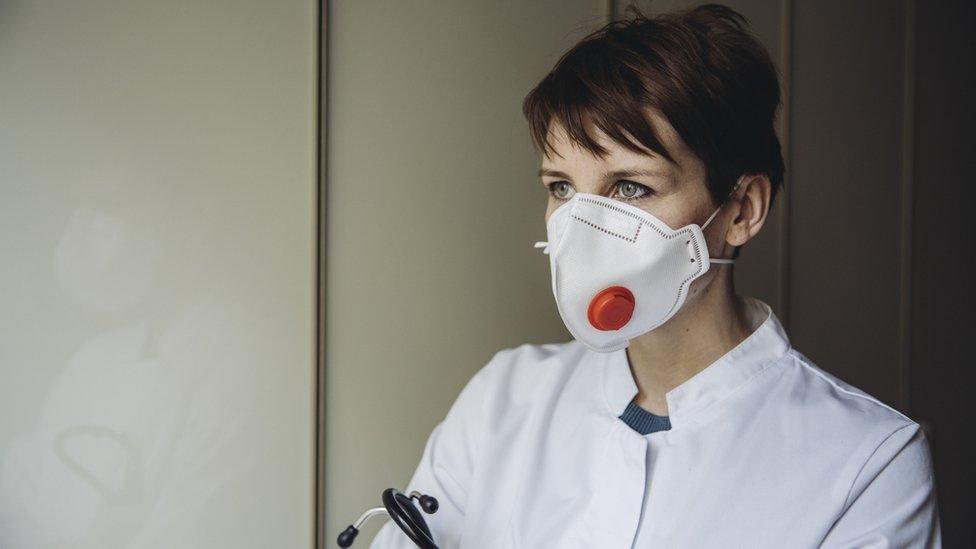
An FFP3 mask - not the brand that failed safety tests
A million masks supplied to the NHS as high grade did not meet the correct level of protection, tests have found.
The masks, assumed to be the FFP3 type, also had invalid CE safety marking, the emblem used to signify compliance with European standards, a report said.
The British Medical Association (BMA) said it was "scandalous" staff working in the pandemic had been put at risk.
The Department of Health and Social Care said a strategy was in place to provide alternatives.
FFP3 masks are worn by health professionals working in intensive care or when certain procedures are carried out that can generate aerosols.
These are tiny virus particles that can build up in stuffy rooms and have been linked to outbreaks of Covid-19.
Tests carried out in February show that masks branded "Fang Tian" and marked as FT-045A distributed for use in the NHS in England failed FFP3 requirements.
The report issued by the British Standards Institution in June also stated the personal protective equipment (PPE) carried a "false" CE mark.
It said they bore the discontinued identifying number for BSI Assurance UK Limited but it said the masks had not been certified by that body.
The Department of Health and Social Care (DHSC) said 1.12 million of the masks were either in use in the NHS or in stores when they were withdrawn earlier this year. They said this represented a "very small proportion" of its overall stocks.
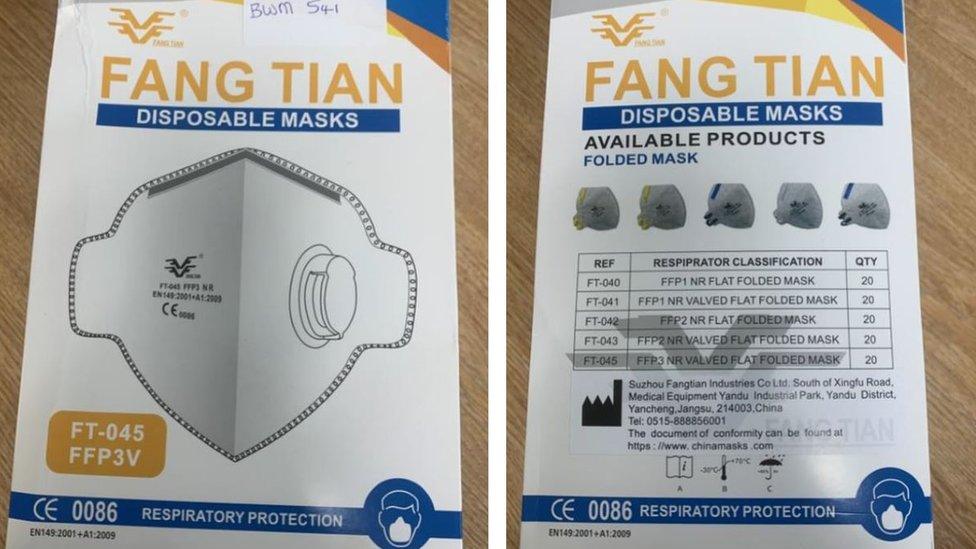
In February officials said they had commissioned "independent testing" of the masks and that they would communicate the outcome "shortly". The results were only shared with NHS staff earlier this month.
In the letter seen by the BBC, the DHSC said it was important to "reassure" users that the masks "should have afforded protection equivalent to the level that the World Health Organisation recommends" for performing aerosol-generating procedures.
Test results showed the masks would have passed this lower FFP2 standard. But it is the higher FFP3 standard that is recommended in the UK.
"Even though they were eventually recalled, to know that more than one million masks were not providing the lifesaving protection they should have been shows what little regard has been given to the quality of some PPE and the procurement process it goes through," said Dr Vishal Sharma, consultants committee chair with the BMA doctors' union.
"There are serious questions that need answering: how did they end up within the supply chain, let alone being distributed to hospitals? Why were problems not identified earlier? How many were used by healthcare workers before the recall, and did any staff become sick, or worse, after wearing them?"
The public services union Unison told the BBC the incident showed why they believed a public inquiry into the pandemic should be launched without delay.
"All health staff exposed to Covid while treating patients deserved safety kit that met the most stringent standards. Clearly this wasn't the case," said Sara Gorton, the union's head of health.
"Wherever they were put at risk by sub-standard PPE, their employer has to investigate fully and report any incidents to the Health and Safety Executive (HSE)."
The HSE said it was continuing its inquiries.
'Unsuitable' for use
The supplier of the masks, Polyco Healthline, told the BBC a "valid British Standards Institution report" for the masks was provided in good faith to the NHS when they were ordered last June and signed off by them. It said the NHS used the information they provided to place the order. It added the masks were tested at the time and checked and cleared by Chinese customs.
The company added the product "narrowly failed" FFP3 testing this year because it was only tested on men despite the product being marked as small in size. It said their own independent testing on a "mixed range of face sizes" showed the product passing.
A spokesperson said: "This product is not a standard product for Polyco Healthline and was only provided to help the NHS during a national emergency.
"We are proud to have supplied the NHS with over one billion pieces of our branded PPE without any issues."
Last week Parliament's spending watchdog revealed that 2.1 billion items of equipment worth more than £2bn - out of a total of 32 billion items ordered by the health department - were unsuitable for use in medical settings.
A spokesperson said: "We have issued advice to health and care providers to check their stock and if it included this product, to stop using these masks immediately and to quarantine any stock pending further investigation and testing.
"We have put in place a thorough mitigation strategy to ensure that providers using these masks have alternative masks and are providing fit testers to rapidly fit test staff to these alternatives."

DINA IS RACING FOR MORE: The sprinting star on the pressure to take gold in Tokyo and life off the track
THE HIDDEN HISTORY OF OUR NHS: The nurses, doctors and health workers from overseas who have transformed our health service

- Published23 February 2021
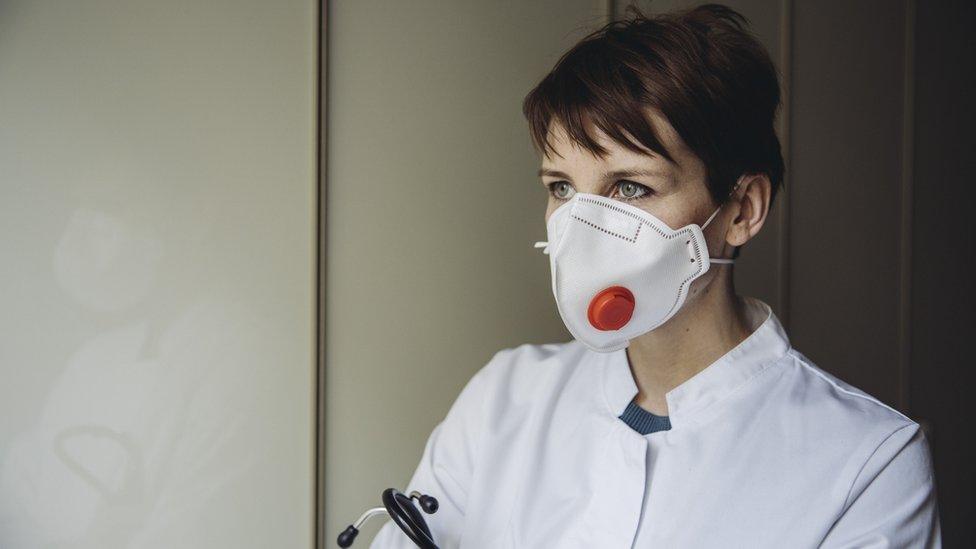
- Published23 January 2021
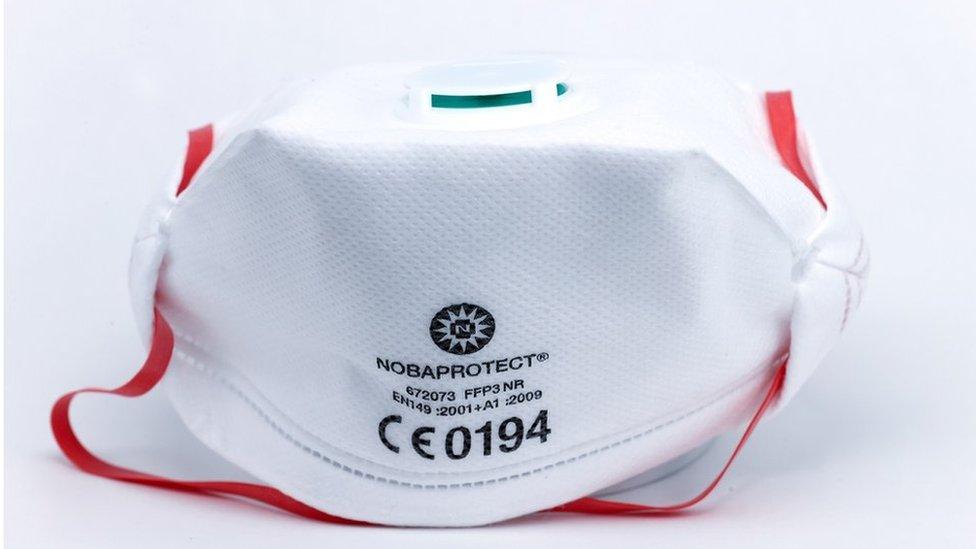
- Published14 December 2020
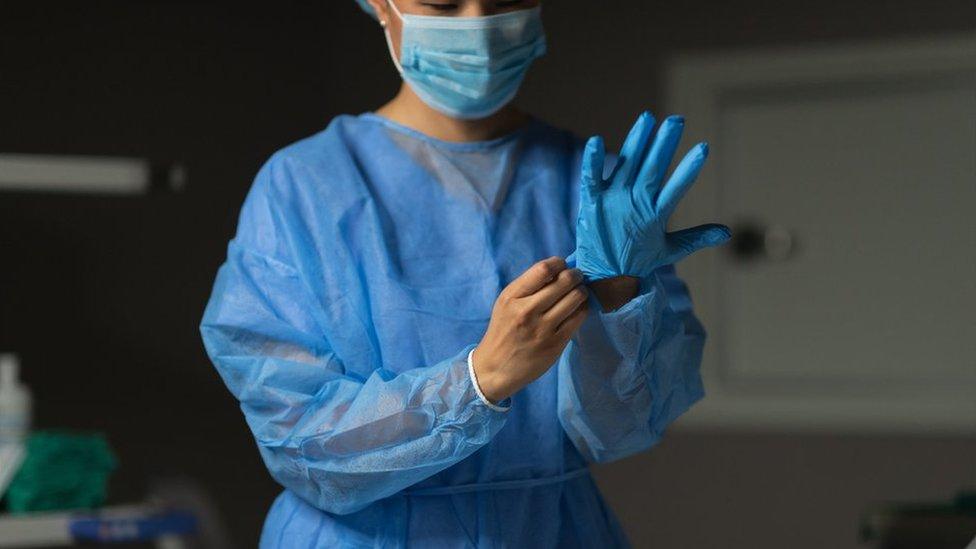
- Published19 February 2021
